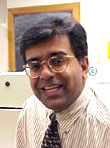
Ph.D., Associate Professor of Pharmaceutical Sciences in the School of Pharmacy, Bouve College of Health Sciences and Associate Director of the Nanomedicine Consortium, Northeastern University in Boston, MA.
Dr. Amiji received his undergraduate degree in pharmacy from Northeastern University in 1988 and his Ph.D. in pharmaceutics/biomaterial science from Purdue University in 1992. His areas of specialization include polymeric biomaterials, drug delivery systems, and nanomedical technologies.
Dr. Amiji’s research interests include synthesis of novel polymeric materials for medical and pharmaceutical applications; surface modification of cationic polymers by the complexation-interpenetration method to develop biocompatible materials; preparation and characterization of polymeric membranes and microcapsules with controlled permeability properties for medical and pharmaceutical applications; target-specific drug and vaccine delivery systems for gastrointestinal tract infections; localized delivery of cytotoxic and antiangiogenic drugs for solid tumors in novel biodegradable polymeric nanoparticles intracellular delivery systems for drugs and genes using target-specific, long-circulating, biodegradable polymeric nanoparticles; gold and iron-gold core-shell nanoparticles for biosensing, imaging and delivery applications. His research has received funding from the National Institutes of Health, local biotechnology and medical device industries, and private foundations.
Dr. Amiji has extensively published research articles, book chapters, and conference proceedings. He has also published two books - Applied Physical Pharmacy (McGraw-Hill, 2003) and Polymeric Gene Delivery Systems: Principles and Applications (CRC Press, 2004). Dr. Amiji has received a number of awards and accolades including the third prize of Eurand Award for Outstanding Research in Oral Drug Delivery in 2003.
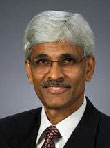
Dr. Sivaram Arepalli is the Director of Nanotechnology at NanoScience Consultants LLC, Hampton, VA, USA and provides consultancy services to industry, academia and government on applications of nanomaterials for Aerospace, Energy and Medicine. He provides expert advice for characterization and evaluation of a wide variety of material systems covering the macro, micro and nanoscale regimes using laser and multiple spectroscopic techniques. Engaged in developing short courses and research services for nanoscience and nanotechnology applications.
Dr. Arepalli is an internationally recognized authority in materials science, specifically carbon nanotubes, and brings over 35 years of experience to NSC. He was the Vice President of Graduate Education at the National Institute of Aerospace (NIA), Hampton, VA and supported 40 graduate students from nine partner Universities to work at NASA. Prior to that, he was at Sungkyunkwan University in Suwon, South Korea as a Senior Professor in the Department of Energy Science. In addition to research in energy storage, he aided in the recruitment of new faculty members and organized the department’s Nobel Laureate Lectures.
Dr. Arepalli worked at NASA’s Johnson Space Center (JSC) as Chief Scientist of the Applied Nanotechnology Program. He developed a multi-million dollar laser laboratory that collected the first ever in-situ diagnostic data during nanotube growth. His work with organizations across the globe has helped to establish international standards for carbon nanotube measurement.
Dr. Arepalli holds two patents and is the author of over 90 peer-reviewed publications. He is on the editorial board of “The Journal of Nano Energy and Power Research.” In addition, he is a member of the advisory committee for the Indo-Korean Partnership in Nanotechnology and a Science Ambassador with the Korean Foundation for the Advancement of Science and Creativity. He is also on the advisory boards of several international conferences on nanomaterials, energy and aerospace.
Dr. Arepalli holds a Bachelors of Science in Mathematics, Physics, and Chemistry from Andhra University in India; a Masters of Science in Physics from the Indian Institute of Technology in Madras, India; and a Doctor of Philosophy in Physics from the Indian Institute of Technology in Kanpur, India. He carried out postdoctoral work at University of Pennsylvania and Cornell University and worked as Research Assistant Professor at University of Illinois before joining NASA Johnson Space Center in 1987.
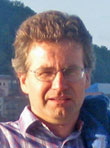
Wolfgang S. Bacsa, Ph.D., Professor, CEMES (‘Centre d'Elaboration de Matériaux et d'Etudes Structurales’) CNRS, Toulouse. Dr. Wolfgang Bacsa is an expert in the field of nano-photonics and nano-materials. He has a Ph.D. from the Swiss Federal Institute of Technology (ETH) Zürich in Physics and has extensive experience in condensed matter physics, photonics, microscopy and the synthesis of nano-materials. Dr. Bacsa worked at ETH Zürich, Penn State University and EPFL Lausanne. He is currently a professor at CEMES/CNRS and the University of Toulouse in southern France. His research interests are in advanced optical microscopy, carbon nanotubes and protein aggregation. He has more than 20 years of research experience and published more than 120 scientific papers. He received two Innovation prizes in 1998 and has been an invited visiting scientist at SRI Menlo Park CA, the University of Osaka, Japan and he has been a visiting research professor at the photonics centre/ Boston University, Boston MA.
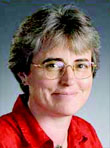
Ph.D. Associate Professor of Physics at Worcester Polytechnic Institute, MA, USA. Professor Burnham graduated from the University of Colorado at Boulder in 1987 with a Ph.D. in Physics. Her thesis work concerned the surface analysis of photovoltaic materials. As a National Research Council Postdoctoral Fellow at the Naval Research Laboratory, she became interested in scanning probe microscopy, in particular its application to detecting materials properties at the nanoscale. After three years as a von Humboldt Fellow in Germany at Forschungszentrum Juelich, she spent another six years in Europe, principally at the Ecole Polytechnique Federale de Lausanne in Switzerland, all the while pursuing the mechanical properties of nanostructures (nanomechanics). She became an Associate Professor of Physics at Worcester Polytechnic Institute at the beginning of 2000. Professor Burnham's international experience also includes sejours at the University of Bordeaux, Tokyo Institute of Technology, and the Royal Institute of Technology in Stockholm. Invited, tutorial, or plenary speaker at approximately 30 conferences, author or co-author of roughly 50 publications, she is as well active as Treasurer of the Nanoscience and Technology Division of the AVS and program committee member. She is the recipient of the 2001 Nanotechnology Recognition Award from the same organization. She teaches atomic force microscopy to undergraduates and graduate students and is writing a textbook for her course, in part supported by the National Science Foundation. Current research interests include metrology and instrumentation for nanoscience in cooperation with the National Institute of Standards and Technology, molecular mechanics, and durability of microsensor surfaces.
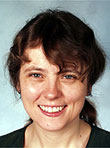
Fiona is coordinator of soft nanotechnology programs at the NSTI, she
has more than 15 years experience in the industrial applications of
polymer and surfactant science. Her introduction to industrial polymer
science was in the late 80’s at Courtaulds Research in the UK where she
worked as part of the team developing Tencel - a new environmentally
friendly solvent spun cellulose fiber. She also investigated the effects
of polyacrylonitrile microstructure on carbon fiber performance using
early molecular and quantum mechanics computer modeling techniques.
Courtaulds' involvement as a founder member of the Biosym/Molecular
Simulations Inc. (MSI) Polymer Consortium, one of the earliest materials
simulation efforts, meant frequent trips to sunny San Diego, CA. In 1991
she moved to California to join Biosym. Fiona spent nine years at
Biosym/MSI (now Accelrys). She carried out contract research for some of
the top US and European companies. As manager of the MSI training group
she prepared and presented more than 30 workshops worldwide on polymer
science and molecular modeling. She also worked in marketing and
technical sales support. In 1999 she was hired into a central research
group at Colgate Palmolive. This presented challenges including
materials structure and property prediction for toothpaste, detergent,
hard surface care and personal care products, and packaging and
fragrance technology. She also continued to be active in professional
education as a lecturer for American Chemical Society (ACS) Short
Courses on polymer science and molecular modeling. In her spare time she
organized a symposium on Mesoscale Phenomena in Fluid Systems, which was
held during the ACS National Meeting in Boston, 2002. She is the
coeditor a book based on this symposium (ACS Symposium Series #861). In
2003 Fiona left Colgate Palmolive to move to beautiful Vermont with her
husband, Martin Case, and to found Case Scientific offering consultancy
and contract research in soft nanotechnolgy, computational chemistry,
polymer and surfactant science. She has also embarked on a ”second
career” in scientific journalism. Fiona is a Chartered Chemist and a
member of the Royal Society of Chemistry, the ACS, the American Oil
Chemists Society, and the National Association of Science Writers.
Case Scientific: http://www.casescientific.com
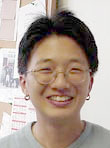
Ph.D., Professor of Mechanical Engineering, , Co-Director of the Advanced Composite Materials and Textiles Laboratory, at the University of Massachusetts Lowell, USA and Director of the Lowell Center of Excellence in Nanomanufacturing.
Dr. Chen's research interests are in the area of mechanical behavior and deformation of fiber structures, fiber assemblies, and composite materials. Emphasis on experimental investigation and analytical modeling of processing (i.e., forming, stamping), energy absorption, fatigue, and failure behavior of composites as they relate to the fiber architecture and manufacturing defects.
Dr. Chen has taught in the mechanical engineering departments at both UML and Boston University and is considered one of the region's leading experts on nanotechnology.
Her interests are in mechanical behavior and deformation of fiber structures, fiber assemblies and composite materials. Additionally, her work focuses on experimental investigation and analytical modeling of processing such as forming, stamping, energy absorption,fatigue, and failure behavior of composites as they relate to the fiber architecture and manufacturing defects.
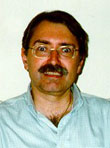
Ph.D., Professor, Department of Mechanical and Manufacturing Engineering, University of Cyprus. Professor Charalabos (Haris) Doumanidis holds his Ph.D. from MIT (1988). He has been a Professor and Director of the Hephaistos Thermal Manufacturing Laboratory at Tufts University in Medford since 1991, Chief Scientist with Axcelis Technologies in Beverly, MA, since 2000, the founding Director of the Nanomanufacturing Program at the National Science Foundation (NSF) since 2001, Visiting Professor of Mechanical Engineering at MIT since 2002, and a Consultant for automation, optoelectronics, biomedical imaging and automotive industries. His research and teaching interests include nanomanufacturing, thermal manufacturing, material deposition and joining processes, rapid prototyping, rapid thermal processing and laser annealing of semiconductors, distributed parameter system modeling and control, robotics and mechatronics, and biomedical instrumentation. He is Associate Editor of the I. J. of Modeling and Simulation, the organizer and chair of over 25 symposia for ASME, IASTED, IEEE, NSET and NSF, the speaker of over 60 keynote and invited lectures, and the author of over 160 papers and several patents and book chapters. He is the recipient of the Marie Curie Chair of Excellence (2004) by the European Commission, the ASME Blackall Award (2002), the White House Presidential Faculty Fellow Award (1996), the NSF Young Investigator (1994) and the Research Initiation Award (1992).
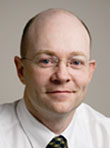
Ph.D., Research Associate Professor of Materials Science at the University of New Hampshire and Director of the Advanced Polymers Laboratory, Durham, NH, USA. Dr. Durant earned a degree in chemistry and chemical engineering in from Ecole Nationale Supérieure de Chemie de Montpellier, received his Ph.D. in polymer chemistry from the Université Claude Bernard, Lyon I in France and an MBA from the University of New Hampshire. He has worked as both scientist and project leader in the Polymer Laboratory within BASF AG, Germany and has been an active industrial consultant. Dr Durant’s areas of research interests include polymer dispersions, drug delivery, nanostructured polymers, and polymerization kinetics.
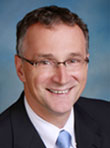
Dr. Ferrari is a founder of the field of biomedical micro/nanotechnology, especially as it pertains to drug delivery, cell transplantation, implantable bioreactors, and other innovative therapeutic modalities. In these fields, he has published more than 100 papers and 2 books. Dr. Ferrari is the inventor of more than 15 issued patents, with about 30 more pending in the United States and internationally. His contributions have received a variety of accolades, including the National Young Investigator Award of the National Science Foundation, a Shannon Director’s Award of the National Institutes of Health, and the Wallace H. Coulter Award for Biomedical Innovation and Entrepreneurship.
Dr. Ferrari earned his degree of Dottore in Matematica at the University of Padova, Italy (1985), and then completed M.S. (1987) and Ph.D. (1989) degrees in mechanical engineering at the University of California, Berkeley. He started his academic career at Berkeley, where he was awarded tenure as Associate Professor of Materials Science, Civil Engineering, and Bioengineering. He moved to the Ohio State University in 1999, where his current appointments include serving as Edgar Hendrickson Professor of Biomedical Engineering and Professor of Internal Medicine, Mechanical Engineering, and Materials Science. Dr. Ferrari is also Associate Vice President, Health Science Technology and Communications, and Associate Director of the Dorothy M. Davis Heart and Lung Research Institute. He currently advises the National Cancer Institute as a Special Expert on Nanotechnology.
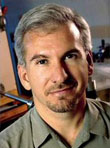
Greg Haugstad is technical staff member and director of the Characterization Facility (“CharFac”; www.charfac.umn.edu), a core facility at the University of Minnesota; he is also a member of the graduate faculty of the Department of Chemical Engineering & Materials Science. The CharFac is part of the National Nanotechnology Infrastructure Network (nnin.org), and is also affiliated with the University’rsquo;s Materials Research Science and Engineering Center (MRSEC) and Industrial Partnership for Research in Interfacial and Materials Engineering (IPRIME). Dr. Haugstad received his B.A. in physics from Gustavus Adolphus College and Ph.D. in physics from the University of Minnesota. His doctoral research examined metal-semiconductor interfaces with synchrotron radiation photoelectron spectroscopy. After postdoctoral research with DuPont in the University’rsquo;s Center for Interfacial Engineering, he joined the CharFac in 1994 focusing on atomic force microscopy (AFM) and ion beam analysis. His AFM research program has expanded to include (i) dynamics at polymeric surfaces, (ii) the structure and properties of thin films (polymer, surfactant, biological), and (iii) contrast mechanisms in AFM including special methods. He has over sixty publications and is a frequent participant in multidisciplinary symposia and workshops with the common thread of AFM methods and nanotribology. He collaborates with companies on soft technologies spanning personal care, ocular and biomedical industries; he also has academic research in biofilms and crystalline organic semiconductors. His teaching includes a graduate course in materials characterization; lab instruction for undergraduates; adjunct teaching for technical college students; training CharFac users; and short courses in CharFac techniques.
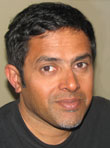
Ph.D., Technical Staff Member, Bioscience Division, Los Alamos National Laboratory, New Mexico, USA. Dr. Iyer has a Ph.D. from the University of Houston in biochemistry, with extensive experience in nano-bio technology development and commercialization. Previously, Dr. Iyer worked at the UNM Medical School in Albuquerque NM and he is presently at the Bioscience Division of the Los Alamos National Laboratory. At Los Alamos his current focus is the blending of micro and nanotechnologies with proteomic analysis and in the development of biologically inspired nanoscale materials for diverse applications. He has over ten years of research and four+ years of technical management experience and four+ years of government based commercialization experience. Through the NSTI, he is commissioned by various US defense organizations to provide bio-nano evaluations for funding and commercialization opportunities. Dr. Iyer is a co-founder of the International Nanotechnology Conference (Nanotech).
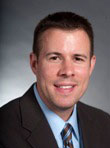
Jonathan Jensen is Director, Business Development at the Office of Technology Development, Boston University
Jon Jensen joined the Office of Technology Development at Boston University in June of 2006. He helps start companies and license new products based on research conducted at Boston University. His portfolio includes advanced materials, energy, IT, and software related technologies.
Jon received his Master of Business Administration degree from Boston University’s Graduate School of Management, and both his Bachelor of Science degree in Mechanical Engineering and his Graduate Certificate in Intellectual Property from Northeastern University. As an undergraduate at Northeastern, Jon gained industry experience as a Test Engineer for genomics, medical device, software, and product development companies. Jon is also a Certified Licensing Professional™ and a USPTO Registered Patent Agent. Jon is a member of the Licensing Executive Society (LES) and the Association of University Technology Managers (AUTM).
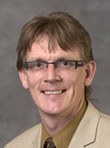
Ph.D., Technical Director of the Network for Computational Nanotechnology at Purdue University and a Professor of Electrical and Computer Engineering since 2003. He leads the development and deployment of web-based simulation tools that are hosted on http://nanohub.org a community website that is utilized by over 3,000 users annually. He was the Technical Group Supervisor for the Applied Cluster Computing Technologies Group and continues to hold his appointment as a Principal Member at the Jet Propulsion Laboratory on a faculty part-time basis. His research interest is in the modeling of nanoelectronic devices, parallel cluster computing, genetic algorithms, and parallel image processing. Gerhard has been the lead on the development of NEMO 3-D, a tool that enables the simulation of multi-million atom quantum dot systems, and NEMO 1-D, the first nanoelectronic CAD tool. Previously he was a member of technical staff at the Central Research Lab of Texas Instruments. He received his Ph.D. in 1994 from Purdue University and his German electrical engineering degree in 1990 from Ruhr-University Bochum. Dr. Klimeck's work is documented in over 380 publications, including over 110 peer-reviewed publications and over 170 invited/contributed conference presentations. He is a member of IEEE (senior), APS, HKN and TBP.
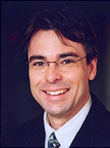
Sean Lee, Ph.D is Licensing Associate, Physical Sciences at the the Office of Technology Transfer at Boston University.
Dr. Lee joined OTD in October of 2005. He has held various positions in corporate research and business development within the biomaterials and medical device field. Dr. Lee has worked at two university start-ups, as a consultant and at Schott AG. At Schott AG he directed the company’s overall scientific and business activities in bioactive glass. Dr. Lee began his career at his own start-up within the University of Florida incubator system.
Dr. Lee received his Ph.D in theoretical physics from the University of Florida, his Diplom Physik degree from the University of Karlsruhe, Germany and a BS in physics from the University of Alabama in Huntsville.
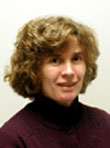
Ph.D., Freudenberg-NOK Associate Professor at UMass Lowell, joined the faculty in 1996. Joey earned her S.B. in chemistry in 1981 and a Ph.D. in polymers in 1986, both at M.I.T., followed by a 10-year career as a materials engineer at the U.S. Army Research Lab (Watertown MA). She is the Deputy Director of the newly awarded NSF Nanoscale Science and Engineering Center at UMass Lowell. Her research interests include elastomers (their mechanical behavior and use in barrier materials), interfacial properties of fiber reinforced composites, rubber recycling, and nanomanufacturing of plastics.
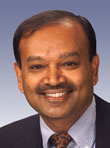
Ph.D., Director of the Center for Nanotechnology as well as Senior Scientist at NASA Ames Research Center in Moffett Field, CA. He is a founding member of the Interagency Working Group on Nanotechnology (IWGN) established by the Office of Science and Technology Policy (OSTP). The IWGN is responsible for putting together the National Nanotechnology Initiative.
Dr. Meyyappan's group, consisting of about 60 scientists, has been engaged in various aspects of nanotechnology (see http://www.ipt.arc.nasa.gov). He has published over 160 articles in peer-reviewed journals and has given over 100 Plenary/Keynote/Invited Presentations in nanotechnology subjects at various national and international technical, business and educational conferences and numerous Invited Talks at universities, non-profit organizations and companies across the world. He has edited and authored a text book “ Carbon Nanotubes: Science and Applications ”, published by CRC Press in 2004.
Dr. Meyyappan is a Fellow of the Institute of Electrical and Electronics Engineers (IEEE). He is Fellow of the Electrochemical Society (ECS). In addition, he is a member of American Society of Mechanical Engineers (ASME), Materials Research Society (MRS), American Vacuum Society (AVS) and American Institute of Chemical Engineers (AIChE). He is the IEEE Distinguished Lecturer on Nanotechnology and ASME's Distinguished Lecturer on Nanotechnology. He is currently the President-elect of the IEEE Nanotechnology Council.
For his work and leadership in nanotechnology, he has been awarded NASA's Outstanding Leadership Medal and Arthur Flemming Award by the Arthur Flemming Foundation and George Washington University. For his contributions to nanotechnology education and training, he has been awarded the 2003-2004 Engineer of the Year award by the San Francisco section of the AIAA (American Institute of Aeronautics and Astronautics). In November 2004, he has been awarded President's Meritorious Award for his contributions to nanotechnology.
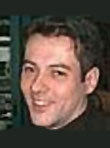
Dr. Pierre Panine is recently appointed as senior scientist in Xenocs SA in Sassenage, France, a spin-off company from Institut Laue Langevin, Grenoble, France. His field of expertise is the application of x-ray to structural characterization of materials, soft matter and biological systems. He obtained his PhD in physics at the University Joseph Fourier, Grenoble. His doctoral research was focused in the field of polymeric membrane science, using broad ranges of characterization techniques like NMR, spectroscopy and microscopy. After a short passage in the renal care HOSPAL R&D center in Lyon, France, he integrated the Soft Condensed Matter group of the European Synchrotron Radiation Facility (E.S.R.F.), Grenoble, France. His research program was focused on large scale structure in self assembled materials, polymeric solutions, surfactants and mechanisms of molecular ordering under controlled mechanical conditions. He has over 35 peer-reviewed publications and had teaching duties at doctoral level at the university Joseph Fourier, Grenoble, directly related to practical use of small angle and wide angle x-ray scattering with synchrotron radiation instruments.
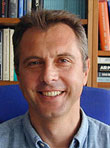
Dr. Sotiris E. Pratsinis (PhD UCLA 1985) is Professor of Process Engineering (www.ptl.ethz.ch) at the Swiss Federal Institute of Technology (ETH Zurich), Switzerland since 1998. His research centers on aerosol processing of nanoparticles with applications in catalysts, ceramics, sensors, batteries, dental and food materials. His program has been funded by the U.S. and Swiss National Science Foundations as well as by DuPont, Nestle, Toyota, Ivoclar-Vivadent etc. Prior to this he was Professor and Interim Head of Chemical Engineering at the University of Cincinnati, Ohio (1985-98). Prof. Pratsinis has graduated 16 and currently supervises nine PhD students with whom he has published over 200 refereed articles and book chapters on synthesis of nano-TiO2, SiO2, ZnO, CeO2 as well nanocomposites, lightguides and noble metal — ceramics. He has also six patents licensed to Dow Chemical, Degussa and Hosokawa-Micron. He has received the 1988 Kenneth T. Whitby Award of the American Association for Aerosol Research, the 1989 Presidential Young Investigator Award by the U.S. National Science Foundation and the 1995 Marian Smoluchowski Award by the European Aerosol Association and the 2003 Thomas Baron Award by the American Institute of Chemical Engineers (AIChE). He is European Editor of the Journal of Nanoparticle Research and on the Editorial Boards of the Powder Technology, Journal of Aerosol Science, Advanced Powder Technology, Particle and Particle Systems Characterization and KONA Powder and Particle as well as on the Advisory Board of the Australian Research Council Centre on Functional Nanomaterials and on the Science Advisory Board, Harvard School of Public Health - International Initiative for the Environment and Public Health.
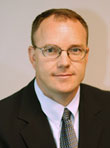
Michael Pratt is Director of Corporate Business Development of the Office of Technology Transfer at Boston University.
Mr. Pratt joined Boston University’s Office of Technology Development in May 2000. He spent five years in Office of Technology Transfer, responsible for the transfer of technologies from the fields of physical, engineering, and computer sciences. As Director of the Office of Corporate Business Development, Mr. Pratt is responsible for building long term partnerships with a special focus on technology development between Boston University/Boston Medical Center and industry.
Prior to OTD, Mr. Pratt was the Global Support Manager at NESLAB Instruments, Inc. of Portsmouth New Hampshire. His duties included management of the Application Engineering and Technical Support departments, P&L responsibility for the field service operation, and maintaining relationships with their International Dealer network.
Mr. Pratt holds a Bachelor of Arts in Physics from Holy Cross College. He is a member of the Licensing Executives Society and the Association of University Technology Managers (AUTM).
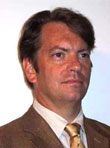
Mark Reed is the Harold Hodgkinson Chair of Engineering and Applied Science at Yale University, which he joined after co-founding the first U.S. Nanoelectronics research program at Texas Instruments. His research activities have included the investigation of nanoscale and mesoscopic systems, electronic transport in heterojunction systems, artificially structured materials and devices, MEMS and bioMEMS, nanotechnology, and molecular electronics. Mark is the author of more than 150 professional publications, 5 books, has given ten plenary and over 200 invited talks, and holds 23 U.S. and foreign patents. He has been elected to the Connecticut Academy of Science and Engineering and Who's Who in the World. His awards include; Fortune Magazine “Most Promising Young Scientist” (1990), the Kilby Young Innovator Award (1994), the DARPA ULTRA Most Significant Acheivement Award (1997), the Harold Hodgkinson Chair of Engineering and Applied Science at Yale University (1999), the Syracuse University Distinguished Alumni award (2000), the Forbes magazine “E-Gang” (2001), the Fujitsu ISCS Quantum Device Award (2001), the Yale Science and Engineering Association Award for Advancement of Basic and Applied Science (2002), and in 2003 was elected a Fellow of the American Physical Society.
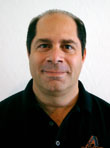
Doug Resnick received his Ph.D. in 1981 from the Ohio State University in the field of Solid State Physics. Before joining Molecular Imprints, Doug worked at Motorola Labs from 1990 till 2004. From 1981-1990, Doug worked at AT&T Bell Laboratories. Development projects included x-ray lithography, GaAs direct write and plasma etching of photomasks. Doug joined Motorola in 1990 and led the development effort for x-ray mask pattern transfer. Doug was a Section Manager in Motorola Labs, and a member of Motorola’s Scientific Advisory Board. Doug’s previous assignment was to provide lithographic and plasma-processing solutions for a diverse group of programs that are developing products in the Embedded Systems and Physical Sciences Labs. Doug was responsible for developing Motorola’s Step and Flash Imprint Lithography research program, and has authored or co-authored over 100 technical publications and holds 16 U.S. patents. He has served as the conference chair for both the EIPBN and SPIE Microlithography Symposiums.
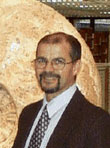
Ph.D., Sam A. Wilson Professor of Chemical, Biological and Materials Engineering; George Lynn Cross Research Professor; School of Chemical, Biological and Materials Engineering, University of Oklahoma.
Dr. Resasco’s research interest is in the area of heterogeneous catalysis. The goal is to understand the relationship between the catalytic performance and the microscopic structure and composition of the material, in addition to the links between the synthesis process and the final catalyst. Achieving this goal requires a combination of studies involving materials synthesis, characterization of materials under reaction conditions, and precise measurement of the catalytic behavior. In this interdisciplinary effort Dr. Resasco’s team employs a variety of techniques, including surface spectroscopies (DRUV-VIS, FTIR), x-ray bsorption (EXAFS, XANES), microcalorimetry, electron microscopy, resonance techniques, and temperature programmed methods (TPD, TPR, TPO), “insitu” Raman spectroscopy, together with steady-state and transient catalytic activity measurements.
Dr. Resasco’s research group conducts their investigations on a variety of materials- zeolites, supported metals, and strong solid acids. Fundamental studies are designed to be applicable to industrial processes such as isomerization and dehydrogenation of lower alkanes, aromatization of paraffins, and nitration of aromatics. Another important application of their studies is in the area of environmental catalysis for the abatement of NOx in the presence of O2, H2O, and SO2. In the last few years, they have started work on the controlled catalytic synthesis of carbon nanotubes in processes that can be scaled-up.
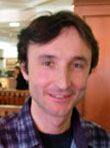
Joël S. Rossier studied physical chemistry at the Swiss Federal Institute of Technology in Zurich - ETHZ, followed by a Ph.D. thesis at the Laboratory of Analytical and Physical Electrochemistry in Lausanne, under the supervision of Prof Hubert Girault. His work partly done in collaboration with Kansas University was focused on the development of µ-chips for diagnostics and electrophoresis applications and was rewarded by the BioRad's Young Scientist Electrophoresis Research Award in 1998.
In 1999, Joël S. Rossier co-founded DiagnoSwiss, a Swiss based company developing microfluidic diagnostics and proteomics systems in collaboration with multinational companies such as Biomérieux and Agilent Technologies which launched in 2006 a product (OFFGELTM-electrophoresis) based on DiagnoSwiss’ technology portfolio.
Joël S. Rossier is author of more than 40 peer-reviewed research articles and 14 patent applications. He is regularly invited as reviewer and editor for international scientific journals (Editorial Board of Electrophoresis, NanoMedicine and Expert Opinion in Medical Diagnostics), and he co-edited a book entitled Microfluidic Application in Biology (Wiley publisher 2006). Dr Rossier co-founded the Swiss Proteomics Society and, in order to keep a strong link to academic institutions, he has been appointed in 2005 as external lecturer at the Swiss Federal Institute of Technology in Lausanne (EPFL).

Steve Schuster is chairman and founder of Rainier Corporation, a leading technology-marketing agency. He has more than two decades of industry experience marketing and designing high-technology products, and while at Rainier has been the creative force behind dozens of PR and advertising campaigns for a wide variety of complex innovations.
Mr. Schuster began his career designing speech recognition systems for renowned futurist Ray Kurzweil, and professional audio processing equipment for Lexicon. His first marketing role as a product manager for real-time data acquisition and signal processing products at Concurrent expanded into industry marketing for measurement, control, vibration, and signal intelligence markets. Following various technology marketing management and director-level roles he served as general manager of Data Translation's digital signal processing division.
Existing PR and ad agencies, he discovered as an executive, were simply not capable of digesting and intelligently communicating technologies to technical audiences. In response, Mr. Schuster launched Rainier in early 1993 with a vision credibly providing technology companies with a professional resource for bringing “complex” technologies to market.
Mr. Schuster received a BS in Electrical Engineering and an MBA, both from Northeastern University in Boston, MA.
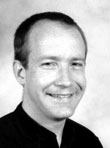
Thomas Twardowski, Ph.D., has been working in nanocomposites since 1997 and in composites since 1987. Dr. Twardowski is the author of the recently released Introduction to Nanocomposite Materials: Properties, Processing and Characterization published by DesTech Publications. He is author or co-author of 25 peer reviewed papers and proceedings on composites and nanocomposites. Dr. Twardowski has diverse research experience in composites, adhesives, biomaterials and science education. Sponsors for composites research have included the US Navy, National Science Foundation, NASA, Motorola, Pennsylvania Department of Environmental Protection and the Pennsylvania Keystone Innovation program. Dr. Twardowski has taught courses in materials, textiles, chemical, and mechanical engineering. He is currently a visiting professor at Widener University in Chemical Engineering where he is also conducting sponsored research on the effects of reinforcement size on properties and multi-scale composites. He has designed short courses for Polymer Nanocomposites 2007 and for the US Army. He is a reviewer for various foundations and publications. Dr. Twardowski is a past president of the Philadelphia Section of the Society of Plastics Engineers, and a member of ASM International, the American Chemical Society and the American Institute of Chemical Engineers.
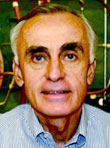
Ph.D., Director of the Nanostructured Polymers Research Center in the Materials Science Program at the University of New Hampshire, Durham, NH, USA. Professor Sundberg has been working in the field of emulsion polymers for over 37 years. He received a bachelor’s degree in chemical engineering from Worcester Polytechnic Institute in Massachusetts and his Ph.D. from the University of Delaware. He spent 5 years working on impact modifiers for ABS polymers with the Monsanto Company prior to pursuing an academic career. His research interests include polymerization kinetics in solution, bulk and emulsion systems, interfacial science and polymer morphology control, diffusion in polymers, micro- and nano-encapsulation, coatings, and controlled release technology.
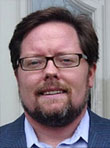
Ph.D., Assistant Professor of Department of Biomedical Engineering and Materials Engineering, Purdue University,West Lafayette, IN, USA. His degrees are in chemical engineering from the University of Pittsburgh (B.S., 1995) and in biomedical engineering from Rensselaer Polytechnic Institute (M.S., 1997; Ph.D., 2000). Dr. Webster’s research involves design, synthesis, and study of nanophase materials for various implant applications. Over the past four years at Purdue, his lab has generated over 5 million dollars in grants through various US agencies and private industry to study biological interactions with nanophase materials. His research on nanophase materials has received attention in numerous recent media publications such as Men’s Health, the Economist, MSNBC News, Chemical and Engineering News, Advances in Nanomaterial Research, Nanoparticle News, highlighted on the cover (with lead story) of the American Ceramic Society Bulletin, Materials Today, Materials Research Bulletin. He has graduated over 10 MS and Ph.D. students and currently has a research lab of 15 graduate students. He is on the editorial board of Biomaterials, Journal of Bionanotechnology, and Expert Review of Medical Devices. He has organized over 25 symposia highlighting the use of nanophase materials in various biological applications. Dr. Webster was the 2002 recipient of the Biomedical Engineering Society Rita Schaffer Young Investigator Award, the 2004 runner- up recipient of the Society for Biomaterials Outstanding Young Investigator Award, nominated for the 2004 top 100 researchers under the age of 35 by TR Review, and the 2004 recipient of the Outstand Young Investigator Award for the Schools of Engineering at Purdue University. He also serves on several grant review panels for the NIH and NSF in the area of nanobiotechnology.
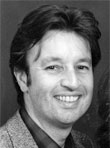
Ph.D., Associate Professor at the Ohio State University, Columbus, USA. Professor Windl works in the area of Nanoscale Computational Materials Science. His field of expertise is in the area of atomistic simulations, especially within density-functional theory. Currently, he works on nanostructured interfaces and molecule-surface interactions of semiconductor device systems. Previously, he spent four years with Motorola, first as Senior Staff Scientist in Motorola's Computational Materials Group at Los Alamos National Laboratory, and later as a Principal Staff Scientist in the Digital DNA Laboratories in Austin, Texas, where he was working in the area of multiscale modeling of semiconductor processing. Before that, he held postdoctoral positions at Los Alamos National Laboratory and Arizona State University. He received his diploma and doctoral degree in physics from the University of Regensburg, Germany. Wolfgang Windl is on the editorial board of the Journal of Computational Electronics and the Journal of Theoretical and Computational Nanoscience. Among others, he has been Chairman of the International Conference on Computational Nanoscience (www.nsti.org) and is recipient of 1998 and 1999 Patent and Licensing Awards from Los Alamos National Laboratory for his contributions to the molecular modeling code CLSMAN. He has given more than 30 invited talks at international conferences and research institutions and has been awarded twice the “Best Teacher” recognition of the Department of Materials Science and Engineering at The Ohio State University.
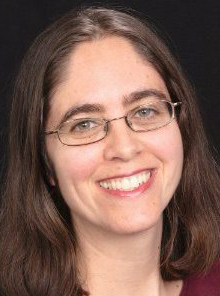
Dalia Yablon holds an A.B. in Chemistry from Harvard University and a Ph.D. in Physical Chemistry from Columbia University. She spent 11 years at ExxonMobil Research and Engineering’s Corporate Strategic Research, its flagship research center in Annandale NJ. At ExxonMobil, she served as Program Leader in various sectors of the energy business and developed a state of the art scanning probe microscopy laboratory for nanoscale characterization of surfaces and interfaces. She has worked in a number of cross-sector areas including polymers, tribology, lubrication, corrosion and unconventional gas resources with a specific focus on developing new nanomechanical characterization methods. In 2013, Dalia founded a scientific consulting company in the greater Boston area, SurfaceChar, a surfaces and interfaces characterization and measurement consulting service with a focus on scanning probe microscopy/atomic force microscopy.